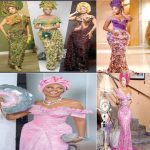At a corner of the bustling roadside in Omentan, Warris Delta State, a wiry man squats beside a wheelbarrow tyre, wiping his grease-stained hands on a faded rag. This is Mr Christian Ughovwa, 43, a vulcaniser whose hands and eyes tell stories of struggle, perseverance and quiet endurance. Each day, he wakes before dawn, not knowing whether he will earn enough to feed his family of five children, soon to be six.
Mr Christian, who hails from Ughelli North Local Government Area of Delta State, told Saturday Tribune that like everyone in the country, he is trying to survive.
“I am just trying to survive. Every day I wake up, I don’t know what the day holds,” he says, with a tired smile and a faraway look in his eyes.
Christian is not just a vulcaniser. He is a man who has tried, and keeps trying, to carve out a better life with the few tools life has offered him. He has lived with the woman he calls his wife for years, yet he has not been able to formally marry her. “There is no money,” he says simply. The couple has five children: two boys and three girls, and another on the way. The weight of responsibility presses heavily on Christian’s shoulders, but he carries it with a mixture of grace and grit.
His journey through life has been shaped by hardship and the will to survive. After completing primary school, he was thrust into the world of menial jobs. “I pushed wheelbarrows, trucks, did concrete work—anything just to eat,” he recalls. Later, he decided to learn electrical work and spent three years learning to repair electrical appliances, even though the full training was meant to last five years. “I had mastered the work,” he says, but his elder brothers refused to help him set up a shop. “They said I didn’t finish the training.”
With that door closed, Christian was left searching again. It was his church members who kept offering him lifelines. One encouraged him to learn keke (tricycle) repair. He gave it a try. At that time, during the presidency of Goodluck Jonathan, things were easier. “Then, I could make N4,000 a day,” he remembers. “Things were cheaper then, and that N4,000 could carry my family for three days.”
But as the years rolled by, the economy grew harsher. The money stayed the same, but its value crumbled. Eventually, Christian gave up on the keke work. “I had started repairing things in the keke, but I had issues with fixing engines,” he says. Again, a member of his church stepped in and suggested he learn vulcanising. “She said her husband was using it to feed their family,” Christian adds. He followed the advice, and today, vulcanising is what keeps his household going—barely.
Even with three different handworks under his belt, life remains a daily struggle. “On a good day, I can make about N10,000,” Christian says. “But there are days when I don’t make anything at all.” And even when he earns, the rising cost of living wipes out any sense of relief. “You make money, but when you go to the market, the money looks like change,” he says bitterly. “It’s very painful.”
Christian’s frustration with the state of the nation is clear. “From government to government, nothing is changing,” he says. “They don’t care about people like us. We are the ones struggling every day.” He believes the solution lies in meaningful empowerment—teaching people skills, supporting them to start businesses, and giving them a chance. “If they empower people, real empowerment, not empty talk, things will be better,” he insists.
His life is not just a tale of hardship, but of quiet strength. Despite being let down at different stages, he continues to press forward, doing all he can to provide for his growing family. “I’m not lazy,” he says with quiet pride. “I have three handworks—electrical, keke repair and vulcanising. I just need support to grow.”
As he bends back over the tyre he was fixing, his final words strike a deep chord: “It’s not that people don’t want to work. But how can you work when everything is against you? We’re just struggling to survive. Every day.”
Christian Ughovwa’s story is not his alone. It is the story of millions of Nigerians whose strength and skills are stifled not by laziness, but by a system that makes survival a daily fight. His voice is one among many, crying out for a country that listens, empowers and acts.
READ ALSO: Nigeria’s economy
WATCH TOP VIDEOS FROM NIGERIAN TRIBUNE TV
- Let’s Talk About SELF-AWARENESS
- Is Your Confidence Mistaken for Pride? Let’s talk about it
- Is Etiquette About Perfection…Or Just Not Being Rude?
- Top Psychologist Reveal 3 Signs You’re Struggling With Imposter Syndrome
- Do You Pick Up Work-Related Calls at Midnight or Never? Let’s Talk About Boundaries






